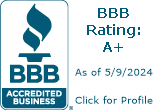Do I Need to Charge eCommerce Sales Tax for My Online Business?
Whether your online business is a brand-new start-up or an established enterprise expanding into eCommerce, managing sales tax correctly has become an increasingly complex responsibility. The landscape of eCommerce sales tax compliance has shifted significantly, particularly following the 2018 U.S. Supreme Court ruling in South Dakota v. Wayfair, Inc. This guide provides an overview of the latest sales tax requirements for online retailers and answers frequently asked questions about eCommerce sales tax.
Do I have to charge sales tax for online sales?
The answer depends on two primary factors:
Factor #1: Have I established sales tax nexus within a state?
How to determine whether you have established sales tax nexus within a state:
Between 1992 and 2018, the nationwide standard for whether a business had established sales tax nexus hinged on whether the business had a “physical presence” within a state. Things were relatively simple then. On June 21, 2018 in its South Dakota v. Wayfair, Inc. ruling , the U.S. Supreme Court overturned the 1992 Quill case that established that “physical presence” principle. We’ve written extensively on the Wayfair case (if you’d like to read more click here ) because of the seismic shift in caused in the world of sales tax, but to summarize briefly here, the Wayfair case changed the sales tax nexus standard from “physical presence” to “economic presence.” Now, a business that has either a physical presence or a sufficient economic presence within a state has established sales tax nexus, and all the collection and reporting obligations that go along with that, within that state’s borders.
What amount of eCommerce sales establishes “economic nexus” within a state?
Like everything in sales tax, the answer is “it depends.” The rules of “economic nexus” vary by state, although most have clustered around the thresholds first established by South Dakota (and essentially OK’ ed by the U.S. Supreme Court in its June 2018 decision) of $100,000+ in sales or 200+ separate transactions per year. Of course, there are outliers. The way I think about it is that the most populated states, and those with the largest tax revenue bases, have established higher thresholds than their less populated (and more revenue-starved)counterparts. For example, the “economic nexus” threshold in California is $500,000+; in New York it is $500,000+ and100+ transactions; and in Texas it is $500,000+. The complexities are too detailed to summarize neatly within this article, but we provide a table in our sales tax nexus studies for eCommerce retailers that summarizes all of this information by state as well as providing the date each state enacted its economic nexus policy. If you have concerns, please reach out to us for additional information and a free consultation.
Factor #2: Are the products I’m selling subject to sales tax within a state?
How to determine what products are taxable:
Even in states where you have established nexus, you will find that some products are subject to sales tax while others are not. You would not need to collect any eCommerce sales tax on the sale of non-taxable items. The rules of what is and is not taxable varies from state-to-state because each state’s Legislature and Department of Revenue establish the rules about product taxability within their state. What is subject to sales tax and what isn’t seldom makes sense and often depends on special interests, lobbyists and other non-logical bases.
For example, here are some popular categories of items frequently sold by online retailers and their corresponding taxability in 5 states:
eCommerce Sales Tax Product Taxability Chart
| Product Category | California | Florida | Illinois | New York | Texas |
|---|---|---|---|---|---|
| Dietary Supplements | Taxable | Exempt | Reduced Rate | Exempt | Exempt |
| Artwork & Crafts | Exempt for certain entities | Taxable | Taxable | Taxable | Taxable |
| Jewelry | Taxable | Taxable | Taxable | Taxable | Taxable |
| Clothing | Taxable | Taxable (with holiday exceptions) | Taxable | Exempt under certain thresholds | Taxable (with holiday exceptions) |
| Protective Clothing | Taxable with exceptions | Taxable with exceptions | Exempt in certain zones | Exempt under certain conditions | Exempt with exceptions |
OK, so maybe the last item in this list is not an example of a popular, frequently sold online product, but nonetheless it is a great illustration of the seemingly random taxability decisions made by states.
Recap & Summary of eCommerce sales tax overview:
Compliance with eCommerce sales tax requirements is more complex under the “economic nexus” standard implemented by the U.S. Supreme Court in its 2018 Wayfair decision. States have implemented different thresholds for what constitutes “economic nexus” and a number of those thresholds have changed, sometimes on multiple occasions, since 2018. To determine if your online store should be collecting sales tax on its sales, you must first determine if your business has established “economic nexus” within a state. If so, then you must determine whether the goods and items your online store is selling are subject to eCommerce sales tax in that state. There are wide variations in the taxability of items from state-to-state, so one cannot assume that a product that is exempt from sales tax in State #1 is also exempt from sales tax in State #2, etc.
Attorneys, or CPA’s may be able to assist you in researching these issues and providing guidance, however, sales tax is often not the main focus of an attorney or CPA’s practice. Sales tax consulting firms, like Agile Consulting Group, have already answered these questions for other clients and have firsthand experience helping other online retailers become and remain compliant with the frequently changing sales tax laws in this niche subject/area. Discussing your business’ operations and concerns with a sales tax consultant is a prudent step many online retailers are taking to ensure they do not run afoul of any states’ eCommerce sales tax reporting requirements.
The post Do I Need to Charge eCommerce Sales Tax for My Online Business? appeared first on Agile Consulting Group.














